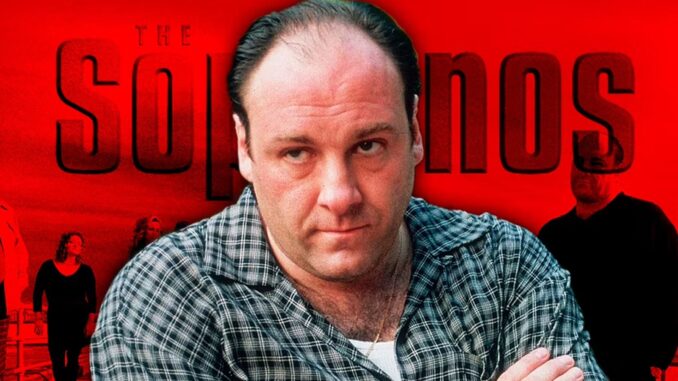
When The Sopranos first graced our screens in 1999, it marked a revolutionary moment in television history. The series, created by David Chase, ran for six seasons and concluded in 2007, but its impact on the television landscape has been enduring and profound. Here’s a closer look at how The Sopranos influenced subsequent television shows and reshaped the medium.
Complex Characters and Antiheroes

At the heart of The Sopranos was Tony Soprano, a character who defied traditional protagonist roles. Tony, portrayed by James Gandolfini, was a mob boss with a complex psychological landscape. His struggles with mental health, family dynamics, and criminal life created a multi-dimensional antihero. This portrayal of deeply flawed, morally ambiguous characters set a new standard for television. The focus on character complexity encouraged later shows to explore their protagonists in more nuanced and often darker ways.
Serialized Storytelling and Narrative Depth
The Sopranos was notable for its serialized storytelling, where episodes were intricately connected, and character development unfolded over multiple seasons. Unlike the episodic dramas of the past, which often featured self-contained stories, The Sopranos embraced long-term narrative arcs. This approach demonstrated that television could sustain complex, long-term storytelling, influencing future series to adopt similar serialized formats that focus on evolving characters and intricate plots.
Realism and Grit
The show’s raw depiction of violence, psychological trauma, and moral ambiguity set a new benchmark for realism in television. The Sopranos didn’t shy away from the harsh realities of its characters’ lives, offering a gritty portrayal that resonated with audiences. This unflinching realism inspired subsequent shows to adopt a more realistic and often brutal depiction of life, moving away from sanitized or idealized portrayals.
Psychological Exploration
A unique aspect of The Sopranos was its exploration of psychotherapy as a central narrative device. Tony’s sessions with his therapist, Dr. Melfi, provided a window into his psychological struggles and added depth to his character. This focus on mental health and psychological exploration became a defining feature of the show and influenced other series to delve deeper into their characters’ inner lives and emotional complexities.
High Production Values

The series was acclaimed for its high production values, including its direction, writing, and acting. The cinematic quality of The Sopranos helped elevate television to a new level of artistic achievement. Its success demonstrated that TV could rival film in terms of quality and sophistication, paving the way for what is often referred to as the “Golden Age of Television,” characterized by high-quality, ambitious programming.
Genre Blending
The Sopranos was also notable for its genre-blending approach, mixing elements of crime drama, dark comedy, family drama, and psychological thriller. This genre fluidity was innovative and encouraged other shows to experiment with blending different genres and tones, creating rich, multi-faceted viewing experiences.
Cultural Impact
Beyond its technical and narrative innovations, The Sopranos became a cultural touchstone, influencing not only other television shows but also broader popular culture. Its success and critical acclaim helped shift perceptions of television as a medium, demonstrating that it could produce compelling, high-quality content on par with film.
Influenced TV Shows
The legacy of The Sopranos can be seen in many subsequent television dramas, which have drawn inspiration from its groundbreaking approach:
Breaking Bad: This series, created by Vince Gilligan, features a morally complex antihero, Walter White, whose descent into criminality mirrors the psychological and moral depth seen in Tony Soprano’s character.
Mad Men: Matthew Weiner, a former writer and producer for The Sopranos, brought a similar level of character complexity and serialized storytelling to this show, exploring the personal and professional lives of 1960s advertising executives.
Boardwalk Empire: Created by Terence Winter, who also worked on The Sopranos, this show embraces the same high production values and intricate narrative style, focusing on crime and politics during Prohibition.
Ozark: Jason Bateman stars as a financial planner turned money launderer, reflecting The Sopranos’ influence in its portrayal of a morally ambiguous protagonist and its use of dark, serialized storytelling.
The Wire: Though it premiered around the same time as The Sopranos, the show’s deep dive into the complexities of urban life and its multi-faceted characters echo the narrative sophistication that The Sopranos helped popularize.
These shows, among others, illustrate how The Sopranos set a new standard for television storytelling, inspiring a wave of high-quality, character-driven dramas that continue to shape the medium today.
